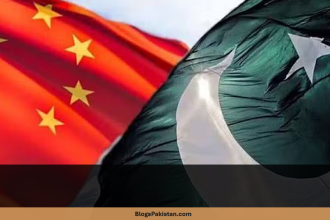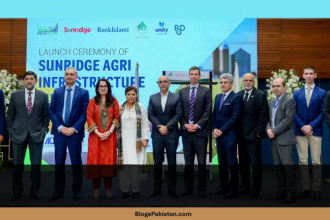Digital Picture this: top Pakistani officials in Dubai, sipping qahwa, not just for the weather or the shopping, but to unlock the magic formula behind the UAE’s legendary digital governance. That’s exactly what’s happening right now, as a high-powered delegation led by Bilal Azhar Kayani (Minister of State for Finance and Railways, and head honcho at the Prime Minister’s Delivery Unit), is on a mission to bring some of the UAE’s public sector wizardry home to Pakistan.
If you’ve ever wished that getting government documents was as easy as ordering biryani online, or that your taxes would sort themselves while you nap, read on. Here’s the inside scoop on how Pakistan is planning to modernize with a little help from its friends in the Emirates.
Focus Keyword: Pakistan digital governance
The Big Why: Why Is Pakistan Looking to the UAE?
Let’s face it—digital governance is the new “it” thing for countries that want to keep up with global progress. We’ve all heard the stories about Dubai’s paperless offices, e-government apps, and customer service that runs smoother than a new Metro line.
Prime Minister Shehbaz Sharif’s administration wants to bring this kind of innovation to Pakistan, making public services faster, smarter, and less likely to make you want to pull your hair out. This latest visit is part of that larger push to digitize and reform, under the umbrella of the UAE Government’s Experience Exchange Programme (EEP).
Who’s Who: Meet the Delegation
Leading the charge is Bilal Azhar Kayani, who’s juggling both Finance and Railways like a pro, and is head of the Prime Minister’s Delivery Unit (no, that’s not a pizza service). The team is rubbing shoulders with top Emirati officials—think of it as a crash course in government, Gulf-style.
Welcoming them is Abdulla Nasser Lootah, the UAE’s Deputy Minister of Cabinet Affairs for Competitiveness and Experience Exchange. The UAE side is rolling out the red carpet (literally and figuratively), eager to share its “secret sauce” for effective public service.
Learning from the Best: UAE’s Digital Governance Playbook
What’s on the UAE’s Curriculum?
- Government Policies & Legislation
- Maryam Al Hammadi, Minister of State and Secretary General of the UAE Cabinet, broke down how the UAE writes rules that actually work—and aren’t just there for decoration.
- Global Competitiveness
- Hanan Ahli, director at the Federal Competitiveness and Statistics Centre, showed off how the UAE isn’t just competitive regionally, but globally.
- Government Accelerators
- Dr. Radhiya Al Hashimi introduced Pakistan to the “Government Accelerators Centre,” which is basically the Avengers for public sector efficiency.
- Strategy for a Sustainable Future
- Haitham Al Rais discussed how sustainability isn’t just a buzzword but a strategic, measurable goal.
What’s In It for Pakistan? (Spoiler: A Lot)
Bringing Digital Governance Home
Kayani’s team isn’t just sightseeing. They’re on a mission to import best practices that could make everyday life in Pakistan a whole lot easier. Imagine:
- E-governance platforms where your paperwork doesn’t get “lost”
- Tax system modernization (tax returns that make sense, anyone?)
- Real-time public service delivery dashboards, not just dusty registers
Kayani highlighted that Pakistan, with its large and energetic population, has massive untapped potential across nearly every sector—only if red tape can be cut and digital efficiency is brought in.
Why Should People in Pakistan and India Care?
Let’s get real. If you live in Lahore, Karachi, Delhi, or Hyderabad, you know that dealing with government paperwork can age you faster than bad Wi-Fi. Modernizing digital governance isn’t just about shiny new apps—it’s about:
- Faster services and less paperwork
- Transparent systems (goodbye, “chai-pani” culture)
- Competitive economies that can attract global investors
- Better citizen experiences
The UAE model proves that public service can be as smooth as a five-star hotel check-in. And Pakistan’s move to learn from this is something India’s digital governance advocates are watching closely too.
The Power of MoUs: More Than Just a Signed Paper
This whole exchange builds on a Memorandum of Understanding (MoU) signed on June 16, 2025, between the UAE Ministry of Cabinet Affairs and Pakistan’s Ministry of Planning, Development, and Special Initiatives.
Sounds official, right? That’s because it is. This MoU is the formal handshake that says: “Let’s swap ideas, not just business cards.”
Bilateral Benefits: It’s Not All One-Sided
Abdulla Nasser Lootah was quick to point out that this isn’t just about Pakistan learning from the UAE. There’s genuine two-way benefit. The more Pakistan modernizes, the more both countries can collaborate in trade, technology, and governance.
And let’s not forget the Pakistani diaspora in the UAE—hundreds of thousands who’d love easier government services back home.
Behind Closed Doors: What Happens at a Governance Bootcamp?
Expect lots of focused sessions, deep-dive presentations, and networking over (very strong) Arabic coffee. The Pakistani team met:
- Cabinet officials for legislative process insights
- Strategy experts on how to “future-proof” government
- Digital transformation leaders showing off dashboards and apps
If you picture a TED Talk with lots more spreadsheets and a few more formal shalwar kameez in the crowd, you’re not too far off.
The Road Ahead: Will Pakistan Become the Next Digital Star?
Kayani and his team are heading back with more than just souvenirs and sand in their shoes. The plan is to apply UAE-tested strategies to Pakistan’s institutions as soon as possible.
This means we might soon see:
- Citizen portals that actually work
- Faster document processing
- More responsive government departments
And who knows? Maybe, just maybe, you’ll soon be able to renew your passport online between chai breaks.
Lessons for India: Watching, Learning, Competing
India has made leaps with its own digital governance (Aadhaar, Digital India, UPI), but nobody has a monopoly on innovation. The cross-border flow of ideas means everyone wins.
If Pakistan nails this transition, expect Indian policymakers to peek over the fence for a few tips, too.
Conclusion: The Start of a Smarter, Faster Government
Pakistan’s digital governance journey is now on the fast track, thanks to a little Emirati inspiration. The real winners? Ordinary people in Pakistan—and maybe even in India—who just want government services to be as painless as ordering a midnight snack.
So, the next time you hear about a delegation visit, don’t roll your eyes. This could be the start of something genuinely transformative, where desert sands and South Asian ambition combine to deliver a new era of public service.










